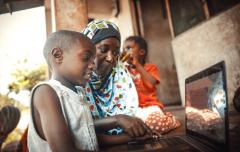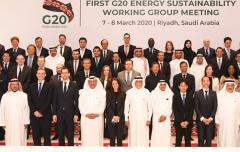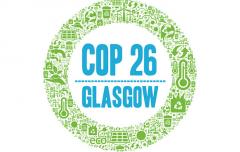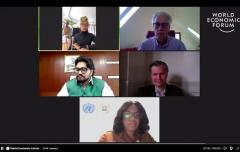Over 20 ministers call for urgent action on energy access as UN High-level Dialogue on Energy formally launched
Over twenty ministerial-level “Global Champions” from UN Member States have today issued a call to action to achieve affordable, clean energy for all by 2030 during the launch of the UN High-level Dialogue on Energy.
Ahead of critical climate talks at COP26, the Dialogue will take place during this year’s UN General Assembly in September and represents the first UN global gathering on energy in over 40 years. The Dialogue presents a historic opportunity to provide transformational action to support progress on the Sustainable Development Goals (SDGs) and the implementation of the Paris Agreement on climate given energy consumption accounts for three-quarters of all greenhouse gas emissions.
The High-level Dialogue on Energy will be co-led by Sustainable Energy for All (SEforALL) with the United Nations Department of Economic and Social Affairs (UNDESA) and UN Development Programme (UNDP) with the support of Global Theme Champions – made up of representatives from Member States at the ministerial level to spearhead advocacy efforts. SEforALL’s CEO and Special Representative of the Secretary-General, Damilola Ogunbiyi, has also been named as the High-level Champion to drive global advocacy for the Dialogue.
“Renewable energy is a key dimension of climate action and is crucial for building a sustainable, prosperous and peaceful future,” said UN Secretary-General António Guterres. “Our challenge is clear: to achieve net zero emissions by 2050, the world must cut carbon emissions by at least 45 percent below 2010 levels within the next decade. With the world way off track, we must use COVID-19 recovery to build a sustainable economy driven by renewable energy.
“If we want this energy transition to be just, and to succeed in creating new jobs, a cleaner and healthier environment and a resilient future, developing countries need strong support. This year’s High-level Dialogue on Energy is an opportunity to advance practical solutions to accelerate the deployment of renewables globally and ensure that the developing world has access to them.”
In the months ahead, the Global Champions have agreed to take the lead in galvanizing voluntary commitments. These will take the form of Energy Compacts that national governments, cities, businesses and civil society organizations will present as contributions towards achieving SDG7 and net-zero emissions, aligned with enhanced Nationally Determined Contributions and long-term climate goals under the Paris Agreement.
“During such a critical year for the energy transition, we need bold action to ensure we leave no one behind,” said Damilola Ogunbiyi, Special Representative of the Secretary-General for Sustainable Energy for All. “From powering health clinics to creating new jobs, energy is at the heart of a prosperous future for all. Faster progress on SDG7 will support climate action, allow us to recover better from COVID-19, and achieve our global goals. The High-level Dialogue will be the global platform where governments, businesses, youth and key stakeholders can come together to recommit to a bold energy future.”
The global roadmap and Energy Compacts will put forward solutions not only for an energy transition away from fossil fuels, but also to meet the needs of 789 million people who still lack access to electricity and the 2.8 billion who lack clean, modern cooking and heating fuels. Solid cooking fuels cause over 1.6 million premature deaths a year of mostly women and children, from indoor air pollution, in addition to their environmental impacts.
“We urgently need to scale up investment and financing to drive forward access to sustainable energy for all - a key element of the SDGs,” said Achim Steiner, Co-Chair of the High-level Dialogue on Energy and Administrator of UNDP. “With the cost of renewables coming down dramatically, it makes sense economically for national and local governments, businesses and others to invest now in smart technologies, helping to create new green jobs and supporting a sustainable recovery.”
Mobilizing commitments
Each Ministerial-level Champion will work to mobilize voluntary commitments and actions in one of the five thematic areas of the Dialogue. Their advocacy will be based on the findings of the five Technical Working Groups that will put forward, for each area, a roadmap for actions needed by 2030 to achieve SDG7. The five themes and Global Champions include:
- Energy Access
Global Champions: China, Japan, Kenya, Malawi, Netherlands, Russian Federation, Saudi Arabia.
Technical Working Group Co-leads: UN Development Programme (UNDP), UN Office for Least Developed, Landlocked and Small Island Developing States (UN OHRLLS), World Bank. - Energy Transition
Global Champions: Brazil, Chile, Colombia, Denmark, Germany, India, Nigeria, Spain, United Kingdom.
Technical Working Group Co-leads: International Renewable Energy Agency (IRENA), UN Environment Programme (UNEP), UN Economic and Social Commission for Asia and the Pacific (UN ESCAP). - Enabling SDGs through Inclusive, Just Energy Transitions
Global Champions: Iceland, Nauru, Panama, Portugal, United Arab Emirates.
Technical Working Group Co-leads: UN Department of Economic and Social Affairs (UN DESA), UN Economic and Social Commission for Western Asia (UN ESCWA), World Health Organization (WHO). - Innovation, Technology and Data
Global Champions: Mauritius, Morocco, Russian Federation*.
Technical Working Group Co-leads: the Food and Agriculture Organization of the UN (FAO); the UN Human Settlements Programme (UN-Habitat), UN Industrial Development Organization (UNIDO). - Finance and Investment
Global Champions: Dominican Republic, Netherlands*, Pakistan, Saudi Arabia*.
Technical Working Group Co-leads: European Investment Bank (EIB), International Energy Agency (IEA), UN Economic Commission for Africa (UN ECA).
Each Working Group, co-led by three relevant UN and international agencies, will consist of 25-40 experts from government and international agencies, businesses, development banks, civil society organizations, academic institutions and others.
Alongside the High-level Dialogue on Energy, 2021 will see a series of UN summits and conferences including the Global Sustainable Transport Conference, the Food Systems Summit, and the Conference of Parties to the UN Framework Convention on Climate Change (COP 26) that will provide major opportunities to advance the SDGs and the Paris Agreement.
Find out more about the High-level Dialogue on Energy here.
* Supporting role.




